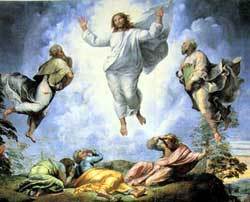The character to whom we are introduced in this week's text is a Samaritan woman (John 4:5-42), a religious and political outsider, despised by the Judeans in Jesus’ time. The split between Samaritan Israelites and Judean-led Israelites still exists to this day. Samaritans had descended from tribes primarily residing in what is today Iraq and were not considered Jews in the pure sense by Judeans of Israel.
The Samaritan woman meets Jesus alone at the well at noon. As if their encounter was not strange enough, the Samaritan moves outside of her social and religious tradition and engages Jesus in an in-depth conversation during which she quickly reminds him as to how his being a Jew and she a Samaritan, separates them. Yet, while at Jacob's well she also reminds him that they are connected though their common ancestor, Jacob.
Somewhat out of character, Jesus tells the woman who he is as he reveals his “name,” I am he. How is it that this woman who meets Jesus briefly, dares to “wonder out loud” if he is the Messiah, while his apostles, still not quite convinced, continue to safely address him as teacher, “rabbi?”
This story underscores Jesus’ love for what society characterizes as outsiders. The Samaritan woman at the well immediately recognizes the societal barriers and boundaries that keeps woman and especially a Samaritan woman in her place; yet she is willing to challenge Jesus' authority over the ancestors of their faith and while she is not certain that Jesus is the Christ she does not let that stop her from dropping everything, leaving her water jar behind and returning to her community and summoning them to meet Jesus "...and see a man who told me everything I have ever done! He cannot be the Messiah, can he?" They left the city and were on their way to him.”
The woman at the well shows us that faith is about an ongoing dialogue, growth and change. It is not about having all the answers. If we are content with our faith just the way it is and are comfortable with our tried and true convictions, we may be missing an opportunity for growth and transformation, and as such, lack the confidence to be able to ask others to "come and see" as the Samaritan woman did.
Another issue, perhaps for another discussion and another time, has to do with organized religions’ pronouncements on women and sexuality. At no time does Jesus condemn or judge her as society and organized religions have. Where did these rules come from? Shouldn’t we finally rise above phony moralism and misplaced misogyny that has characterized so much of Judeo-Christian theology? This is really a story about the transforming power of love and not about a story about a woman who like us, is no less human. After all, Jesus received the Cup from this “scandalous” woman, and she shares it with us in her joy at being loved.



